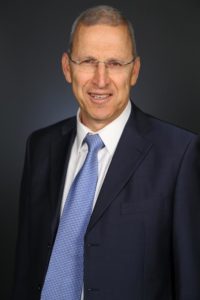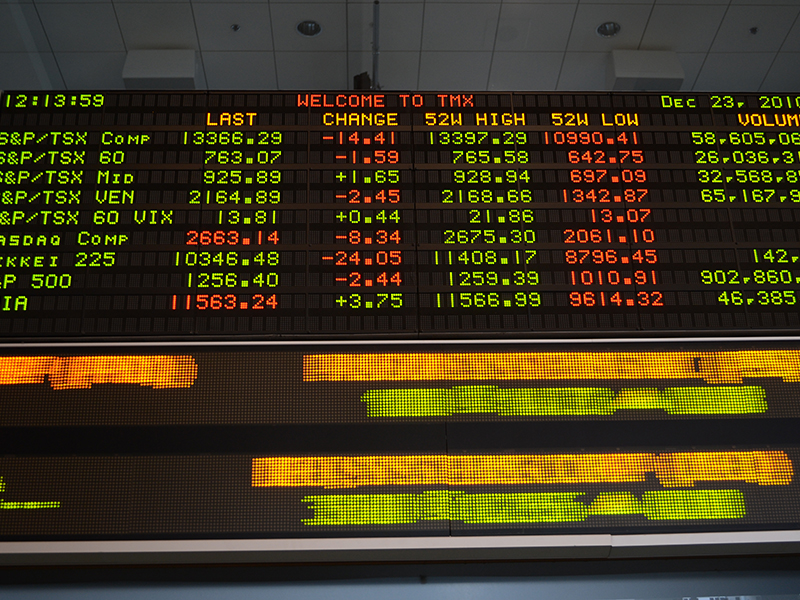Canada’s two largest stock exchanges have stepped up their pitch to Israeli companies by hiring a head of business development for Israel.
Yossi Boker, a 25-year veteran of the Israeli entrepreneurship scene and a former high-tech CEO, will aim to boost the profile of the Toronto Stock Exchange (TSX) and TSX Venture Exchange (TSXV) in a country known for its startup strength.
“Our mandate is to raise the profile of our premier markets around the world,” said Nick Thadaney, president and CEO of Global Equity Capital Markets, TMX Group, in a statement. “Mr. Boker’s vast experience and expertise in the Israeli market will enable us to more effectively promote the advantages of TSX and TSXV’s unique capital formation ecosystem to potential clients and to better support Israeli companies listing on our exchanges.”
The two exchanges are complementary: where the TSX is more established, the TSXV attracts emerging companies that often graduate to being listed on the TSX.
Six Israeli companies are listed on the exchanges and combine for a market capitalization of about $3 billion. Last year, Vaxil Bio Ltd. became the first Israeli biotech company to list on the TSXV.

In seeking to attract Israeli listings, the Toronto exchanges are hardly the only players. The New York Stock Exchange, as well as the Nasdaq, have long attracted Israeli IPOs, and the London Stock Exchange and Australian Securities Exchange have also found success.
For Israeli companies, deciding where to list hinges on several considerations, said Boker, who will be based in Israel. The local Tel Aviv Stock Exchange (TASX) offers comfort, ease and lower costs. But larger foreign exchanges can provide greater access to capital, which strengthens their liquidity and valuation.
“This is the typical argument for Israeli tech companies,” he wrote in an email. “It is a common concept here that successful Israeli companies would list in North America, rather than on the TASX. One could easily observe the list of close to 100 Israeli companies listed on the Nasdaq, which include the most successful Israeli tech companies.”
But the Nasdaq’s size can also be a deterrent. It is the second-largest exchange in the world and includes household names like Google and Amazon. Even successful Israeli companies can get “lost” among market-cap giants like those.
Listing on the Nasdaq also brings costs and strict regulatory requirements that discourage some smaller companies.
This, said Boker, is “where TSX and TSXV advantages shine” as an “early gateway to the North American market.”
“Companies with a market cap of a few tens of millions of dollars, up to a few hundred of millions, will be well noticed, will get relatively strong analyst coverage and will be well noticed by the investor community. The TSX and TSXV thus provide a very appealing value proposition to small- to mid-cap tech companies,” said Boker. “Of course, when the companies grow and expand, they could dual-list on the Nasdaq, if they so desire.”
Another factor: some exchanges have developed expertise in specific segments and attract companies to list with them. The TSX, for example, is a world leader for natural resource firms, such as oil and gas oil companies.
READ: ISRAEL CONSUL GENERAL JOINS ISRAELI BIOTECH COMPANY TO RING TSX BELL
Israel is best known for its high-tech sector – Boker called it the “leading and most interesting segment of the Israeli economy.” And Boker himself has deep ties to the industry. As an entrepreneur, he co-founded RED-C Optical Networks and later sold it for $45 million.
But Israeli companies have shown success in several industries and the expansion to Israel will also target sectors such as retail, real estate, commerce and finance.
Easing Boker’s path is the spike in business links between the two economies in recent years.
“I’m intending to address companies with a special interest or association with Canada,” he said, “for example, companies who conduct business in Canada, or have Canadian investors.”







